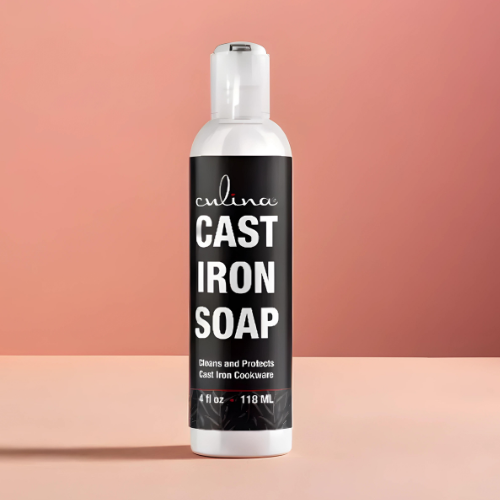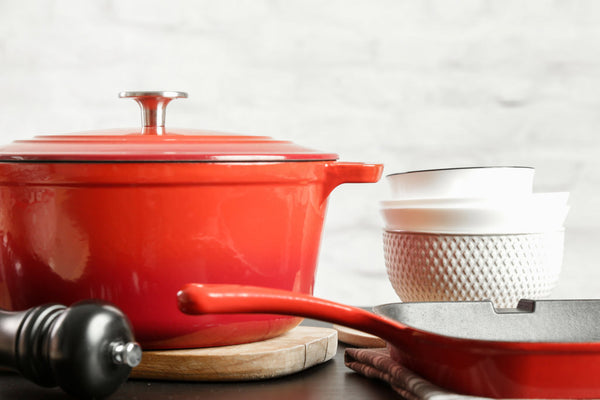When it comes to equipping your kitchen with versatile and durable cookware, few items are as essential as a Dutch oven. These sturdy pots are beloved by chefs and home cooks alike for their ability to handle everything from baking bread to braising meats. Whether you’re an experienced chef or just starting out, understanding what to look for when buying a Dutch oven can make a significant difference in your cooking experience.
In this guide, we’ll explore the key factors to consider when choosing the perfect Dutch oven for your kitchen.

1. Material Matters
Cast Iron Dutch Ovens
Cast iron is the traditional material for Dutch ovens. It provides excellent heat retention and distribution, making it ideal for slow-cooked dishes. Many cast iron Dutch ovens are also enamel-coated, which prevents rusting and makes cleaning easier.
Enamel-Coated Dutch Ovens
Enamel-coated cast iron combines the benefits of cast iron with a non-reactive, easy-to-clean surface. This type of Dutch oven is popular for its aesthetic appeal and functionality.
:max_bytes(150000):strip_icc()/Web_1500-Testing-LeCreuset7.25QuartRoundDutchOven-16-WillDickey-1238-272-39e8c8ce0ce742f89c02f23acbee4664.jpg)
2. Size and Capacity
Small Dutch Ovens
A small Dutch oven, typically around 2-4 quarts, is perfect for side dishes or small meals for one or two people.
Large Dutch Ovens
Larger Dutch ovens, around 6-8 quarts, are ideal for family meals and batch cooking. They offer the versatility to cook larger cuts of meat or prepare stews and soups for a crowd.

3. Shape and Design
Round vs. Oval Dutch Ovens
Round Dutch ovens are great for stovetop use and baking bread, while oval Dutch ovens excel in cooking larger cuts of meat. Consider your typical cooking needs when choosing between the two.
Handles and Lids
Look for Dutch ovens with sturdy, comfortable handles that can withstand high temperatures. The lid should fit snugly to trap moisture and heat, ensuring even cooking.
4. Weight and Portability
Dutch ovens are known for their heft, which contributes to their cooking performance. However, it’s essential to choose a weight that you can comfortably handle, especially when moving the pot in and out of the oven.
5. Price and Brand Reputation
While there are budget-friendly options, investing in a high-quality Dutch oven can provide long-term value. Research reputable brands known for their durability and performance to ensure you make a wise investment.
6. Versatility in Cooking Methods
Consider the types of dishes you plan to cook. A versatile Dutch oven can handle various cooking methods, including braising, baking, frying, and roasting.
7. Maintenance and Care
Cleaning Your Dutch Oven
Proper cleaning and maintenance are crucial for preserving the lifespan of your Dutch oven. Follow manufacturer guidelines and check out resources like this step-by-step cleaning guide.
For detailed cleaning tips, you can also explore how to clean your Dutch oven.
8. Heat Source Compatibility
Ensure that the Dutch oven you choose is compatible with your cooktop. Most Dutch ovens work well on gas, electric, and induction stoves, but it’s always best to confirm before purchase.
9. Aesthetics and Color
While not as crucial as functionality, the color and design of your Dutch oven can add a delightful touch to your kitchen. Choose a style that complements your kitchen decor.
10. Warranty and Customer Support
Check if the Dutch oven comes with a warranty and what it covers. Reliable customer support can be invaluable if you encounter any issues with your purchase.
Faqs
What is the best size Dutch oven for a family of four?
A 6-8 quart Dutch oven is ideal for a family of four. It provides ample space for cooking large meals while ensuring even heat distribution.
Is it necessary to season an enamel-coated Dutch oven?
Enamel-coated Dutch ovens do not require seasoning. The enamel coating prevents rusting and provides a non-stick cooking surface.
Can I use a Dutch oven on an induction cooktop?
Most cast iron Dutch ovens are compatible with induction cooktops. However, it’s essential to check the manufacturer’s specifications to ensure compatibility.
As an Amazon Associate, I earn from qualifying purchases.

